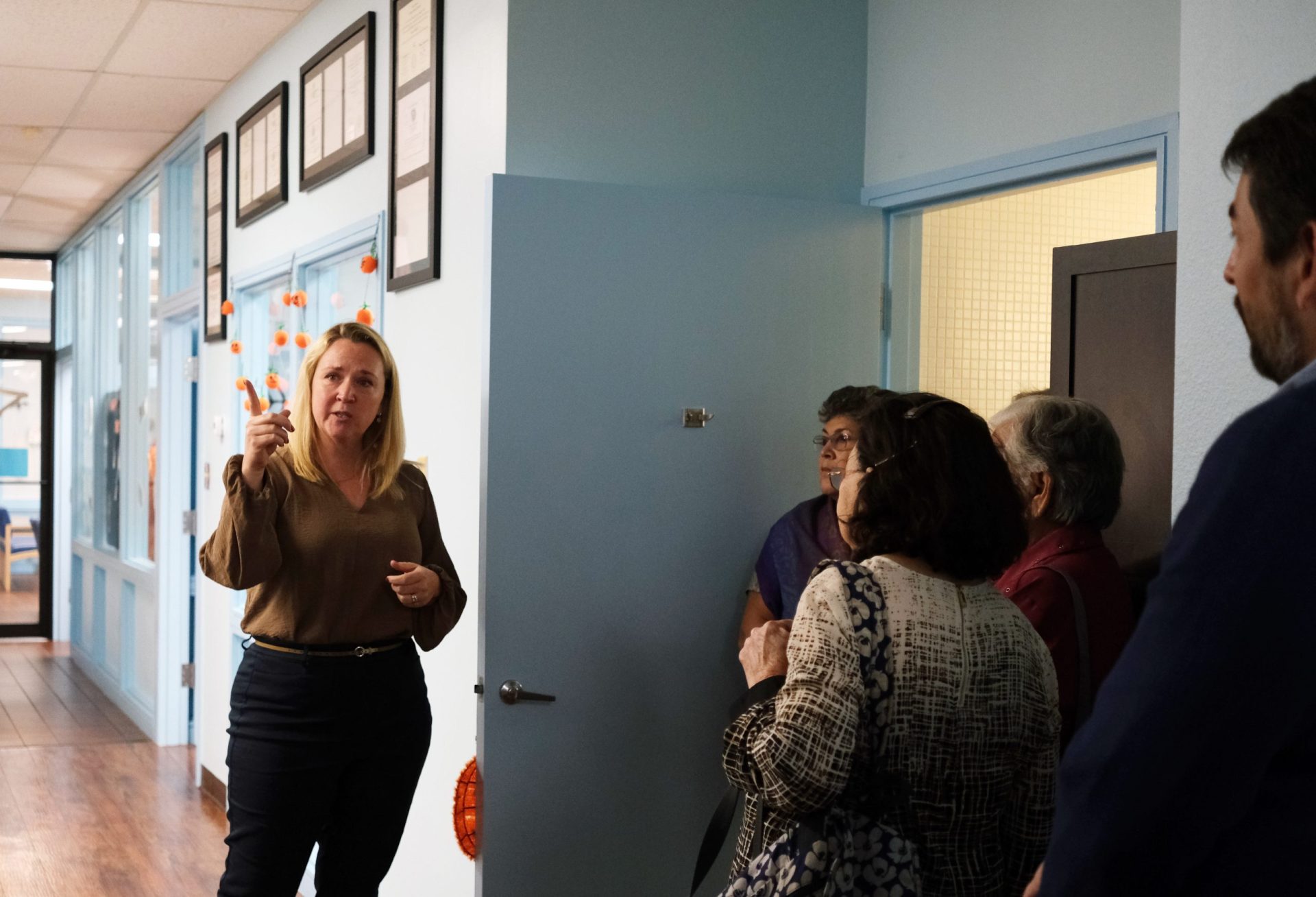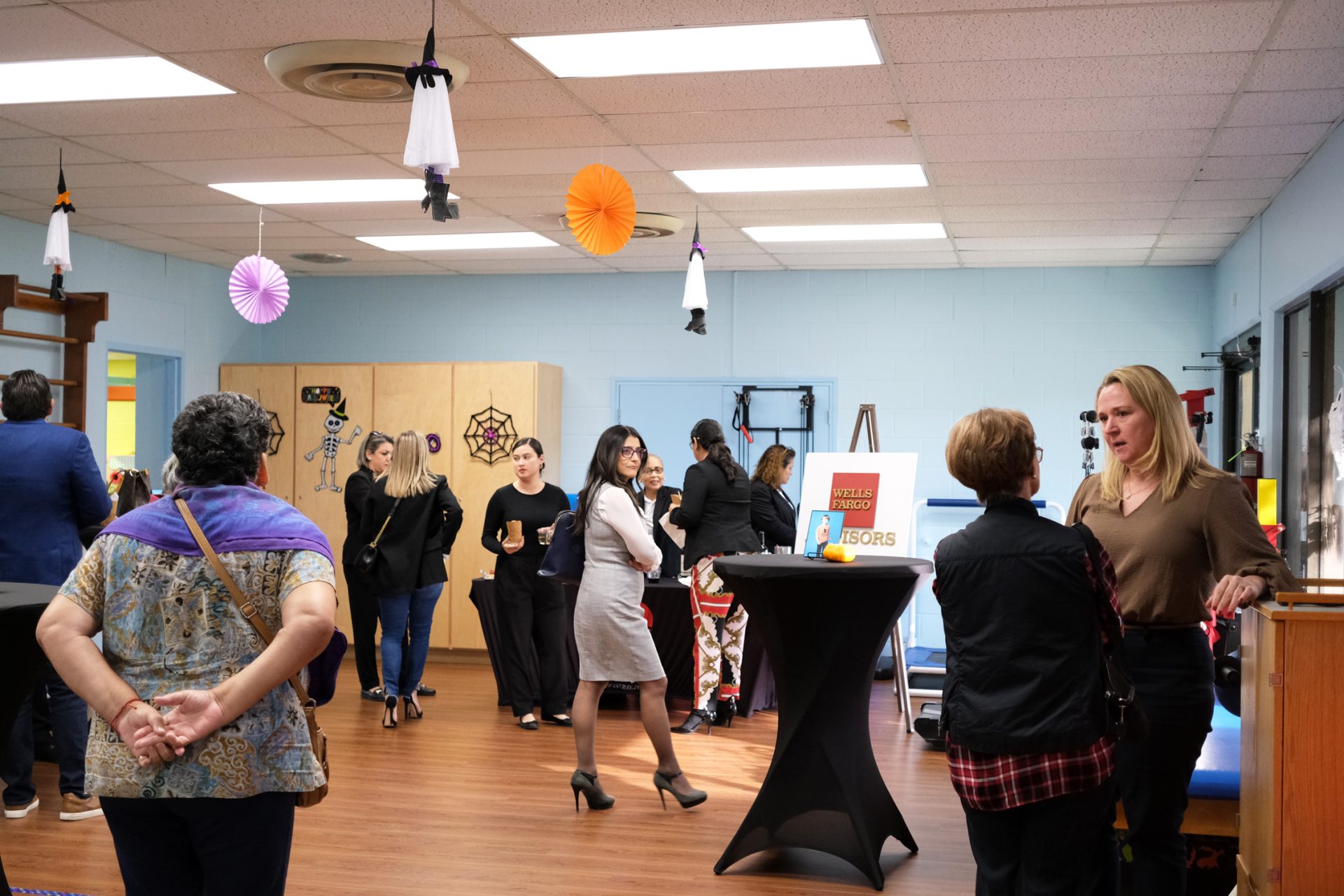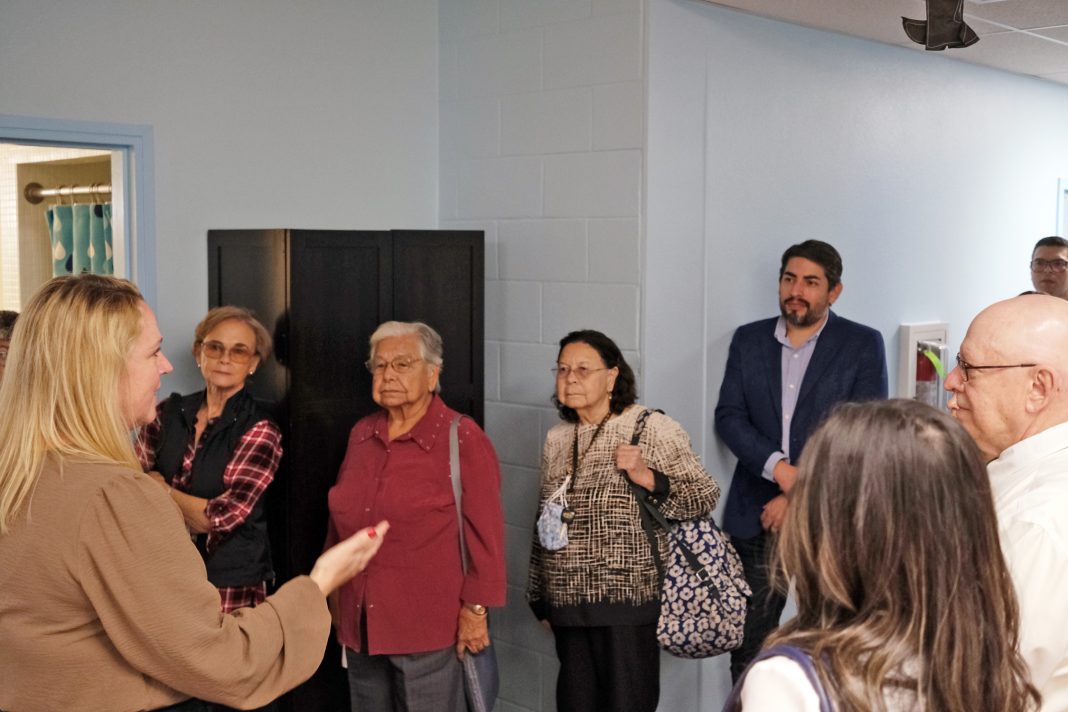A team from Wells Fargo Advisors played matchmaker on Wednesday between a group of local high net worth individuals and five Brownsville nonprofit organizations, with an eye toward financial and estate planning to create greater impact for potential charitable gifts to the nonprofits.
The Wells Fargo team, representatives of the five nonprofits and the high-wealth individuals met over lunch at the Brownsville Museum of Fine Art, then toured each of the nonprofits during the afternoon.
Besides the BMFA, the nonprofits included Guadalupe Regional Middle School, the Children’s Museum of Brownsville, Cameron County Education Initiative and the Moody Clinic, with a cocktail hour there afterward.
“What I think is interesting about this initiative is this Wells Fargo team is kind of on the cutting edge here,” Jessica Cuevas, executive director of the Moody Clinic said. “Nobody in town, or in the Valley really, is taking individuals who are interested in giving back, of high net worth, and connecting them with the nonprofits.”

Andres Shane, financial advisor with Wells Fargo, said his firm believes in giving back to the community and one of the best ways to do that is through nonprofits such as the five chosen for the first phase of the initiative.
In a down year for investing, Shane said It’s hard for people to talk about their specific portfolios, but Wells Fargo emphasizes long-term financial planning.
“That goes to discussing trusts, that goes to discussing wills, and one aspect that we’re asking our clients about is are they charitable, and we’re not necessarily asking them to write a check from their IRA for $1,000 and send it to the Moody Clinic. We’re asking them if they’ve considered a donor advised fund or a charitable remainder trust or setting up a foundation,” he said.
“We’re pretty much matchmaking between a client that has never met Jessica, never stepped foot into the Moody Clinic and we we’re not necessarily wanting to do this during a gala, but to see them on a regular Wednesday afternoon, see her staff go to work and show them how far a contribution of a donor advised fund or charitable remainder trust or from establishing a foundation would go,” Shane said.
A donor advised fund, or DAF, is a giving account established at a public charity. It allows donors to make a charitable contribution, receive an immediate tax deduction and then recommend grants from the fund over time. Donors can contribute to the fund as frequently as they like, and then recommend grants to their favorite charitable organizations whenever it makes sense for them, the National Philanthropic Trust states on its website.

A DAF requires a minimum initial donation of $5,000. DAFs allow charitable donors to grow their donations tax free over time and to pay as much as 20% less in federal income taxes, Shane said.
He added that while financial planning and estate planning is often cut and dried, “We’re trying to find ways to bring it to life. We really want to connect executive directors with potential donors in a responsible manner and so what we’re trying to get out of this today is not necessarily to raise $5,000 before the end of the day. I want to introduce someone to Jessica Cuevas to see her work and to be moved and say ‘I was planning to do a donor advised fund and now I know the institution that I want it to go to and I want to help out some more.’” he said.
Shane said Wells Fargo selected the five nonprofits for two reasons, they have compelling stories and they’re changing lives.
He cited the Cameron County Education Initiative as another example. A fact sheet provided at the luncheon describes CCEI as “a nonprofit career school committed to helping families thrive by providing zer0-debt training in high demand careers.”
“They start with someone that has failed the system in one capacity or another, making minimum wage and they have the capacity, through proper training at CCEI, to make $30 an hour,” Shane said. “That is life changing, and so how do we find them more funding? …How do we find someone who is completely moved by something like that, because you’re changing someone’s life, so how do we educate these people to give back and to make good financial decisions going forward now that they’ve accumulated their own version of wealth?”
He said for high-net worth individuals the question can boil down to “do I give the money to the IRS or do I I give it to charity” through a donor advised fund with a local nonprofit.




